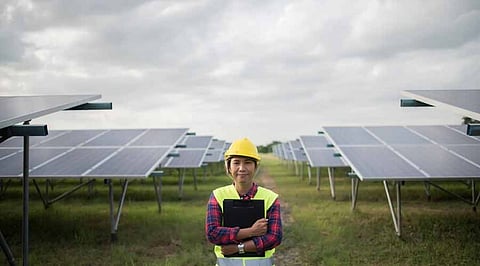

Solar energy is an incredible resource that’s transforming the way we power our homes, businesses, and even cities. However, as more people are making the switch to solar panels, questions about the safety of the systems are also coming up. After all, when you are dealing with electricity and rooftop installations, it is natural to wonder if there are any risks involved. So, let’s dive into the safety aspects of solar panel systems and put some of your worries to rest.
First, it is important to understand how the solar panel systems work. These panels are designed to convert sunlight into electricity through photovoltaic (PV) cells. These cells are placed in durable materials, typically glass and aluminum, and are placed on your roof or in a sunny spot on your property.
The electricity generated by the panels is then sent to an inverter, which converts it into usable power for your home. The entire process is surprisingly safe, with multiple layers of protection added to the system. However, as with any electrical installation, there are some safety considerations one should always keep in mind.
One of the biggest concerns a lot of people have about solar panels is the risk of fire. After all, electricity and fire have a long history. But, the truth is that solar panel systems are extremely safe when installed correctly. The risk of fire from the solar panels is very low, especially compared to other household appliances, like oven and water heaters.
That being said, it is crucial that you have your solar panel systems installed by certified professionals who are following all the necessary safety guidelines. Proper installation will ensure that the system is well-grounded, uses high-quality components, and has regular inspections for any signs of wear or damage.
Another safety concern that a lot of people have with solar panel systems is how they withstand extreme weather conditions. Since the systems are installed outdoors, they need to be tough enough to handle everything from the scorching sun to heavy rain, snow, and wind. The good news here is that solar panels are built to last, and they can be used in any extremities. Most of the panels are tested to endure extreme weather conditions, including hail storms and winds.
Electric shock is another major concern that’s brought up when discussing solar panel systems. However, the risk of electric shock from any properly installed system is relatively low as most of these residential solar panels operate at a low voltage, and if you want to minimize the risk of electric shocks further, you can have your system inspected regularly to avoid any tempering with the components.
When we talk about the environment, solar panel systems are always considered a safe and sustainable option. However, a lot of people are concerned about the potential environmental effects of the manufacturing and disposal of solar panels. While it is true that the production of solar panels requires energy and materials, which can have a negative impact on the environment, the overall manufacturing process has a lower impact than that of conventional energy sources.
As we mentioned earlier, a lot of modern solar panel systems come with smart technology, allowing you to monitor and control the systems remotely. While this is a great feature for your convenience, it will also introduce a new type of safety concern: cyber security. But if you follow all the right safety precautions and keep your network secure, the risk of cyber attacks on your system will be relatively low.
So, if you have been worried about installing solar panel systems because of safety concerns, it is time to put those worries at rest. Solar energy is not only a safe and reliable option, but it is also one of the most environmentally friendly ways to power your life.
